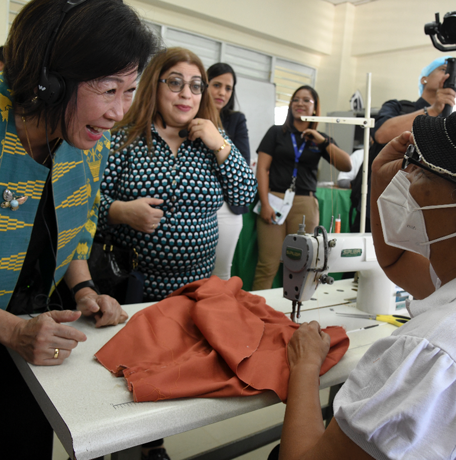During her brief and first visit to the Dominican Republic, the Managing Director of Development Policies and Partnerships at the World Bank, Mari Pangestu, entered the dusty and cobbled streets of communities in Boca Chica to learn about the progress of some of the protection projects that the organization finances in the country.
Pangestu, in the company of a small team from the World Bank and an exaggerated group of officials from public entities that execute social programs, visited two humble homes out of the 9,072 whose dirt floors have been changed as part of this initiative. by cement in 14 of the country’s poorest provinces.
With the replacement of dirt floors, the aim is to contribute to the reduction of diseases, mainly in children, because the soil harbors parasites and bacteria that can cause diarrhea, parasitic infections, anemia and other conditions.
According to data provided by the World Bank, 86% of households where cases of children with diarrhea were recorded have not reported any after the intervention. Flooding has also been reduced and the quality of housing has improved in different aspects.
Trainings
Previously, the group toured the community, gastronomic and technological improvement centers of the community where they met the beneficiaries of the training programs that seek to contribute to the insertion of the participants in the labor market.
Around 30,476 young people, 71% women, have benefited from this project, according to data provided by the agency. In the 14 provinces that are part of the program, some 21,171 young people have been trained in the areas of administrative, secretarial, banking, information technology and telecommunications, residential electricity, hotels, gastronomic services, among others.
In Boca Chica, a municipality where tourist activity predominates, more than 600 students have been trained and many of them have found work in hotels in the area or have started their own projects.
IN POINTS Undertakings
Many of the beneficiaries of the programs prefer to work on their own and that is why some 9,305 people have been trained in productive entrepreneurship to promote their inclusion, autonomy and economic resilience. This was evident in the sewing course, where most of the participants said that their plans were to start a project at home. The World Bank recognizes that these may be more precarious jobs, because they do not have health insurance and other benefits.
